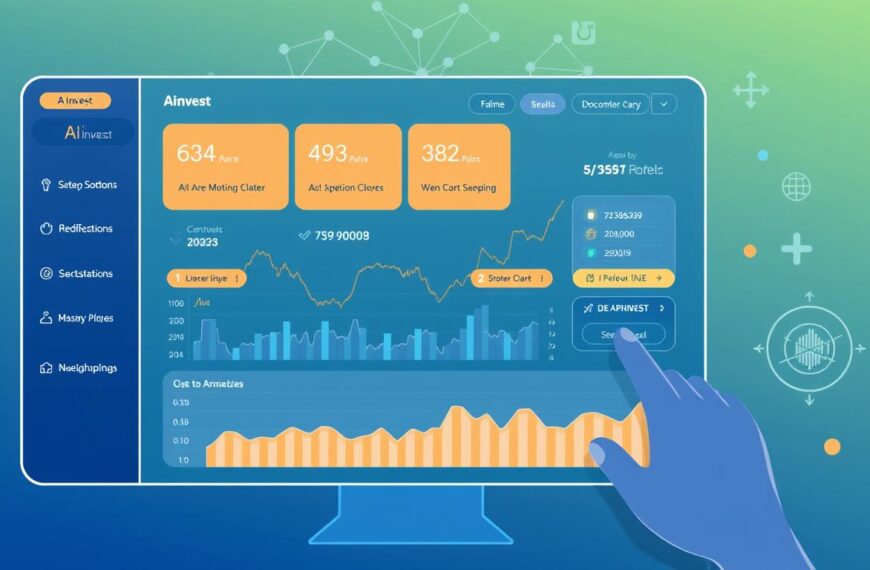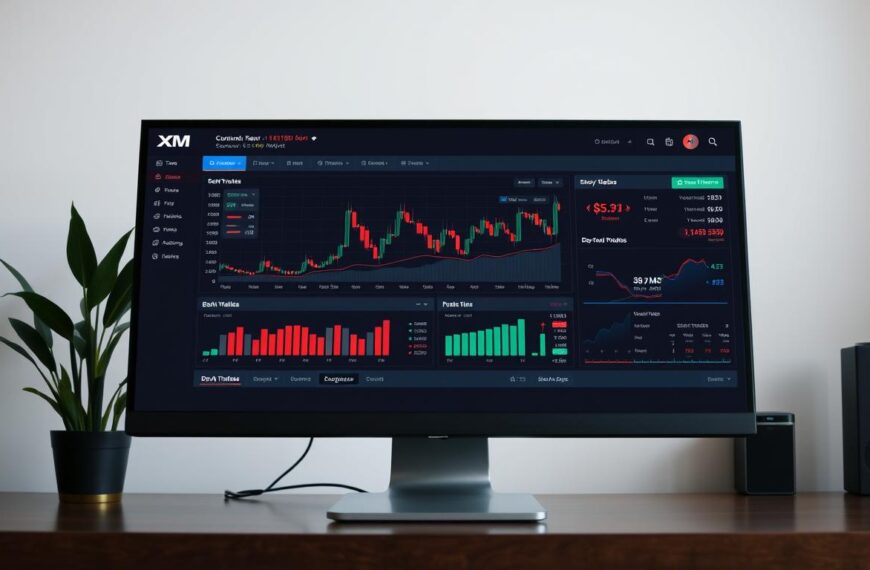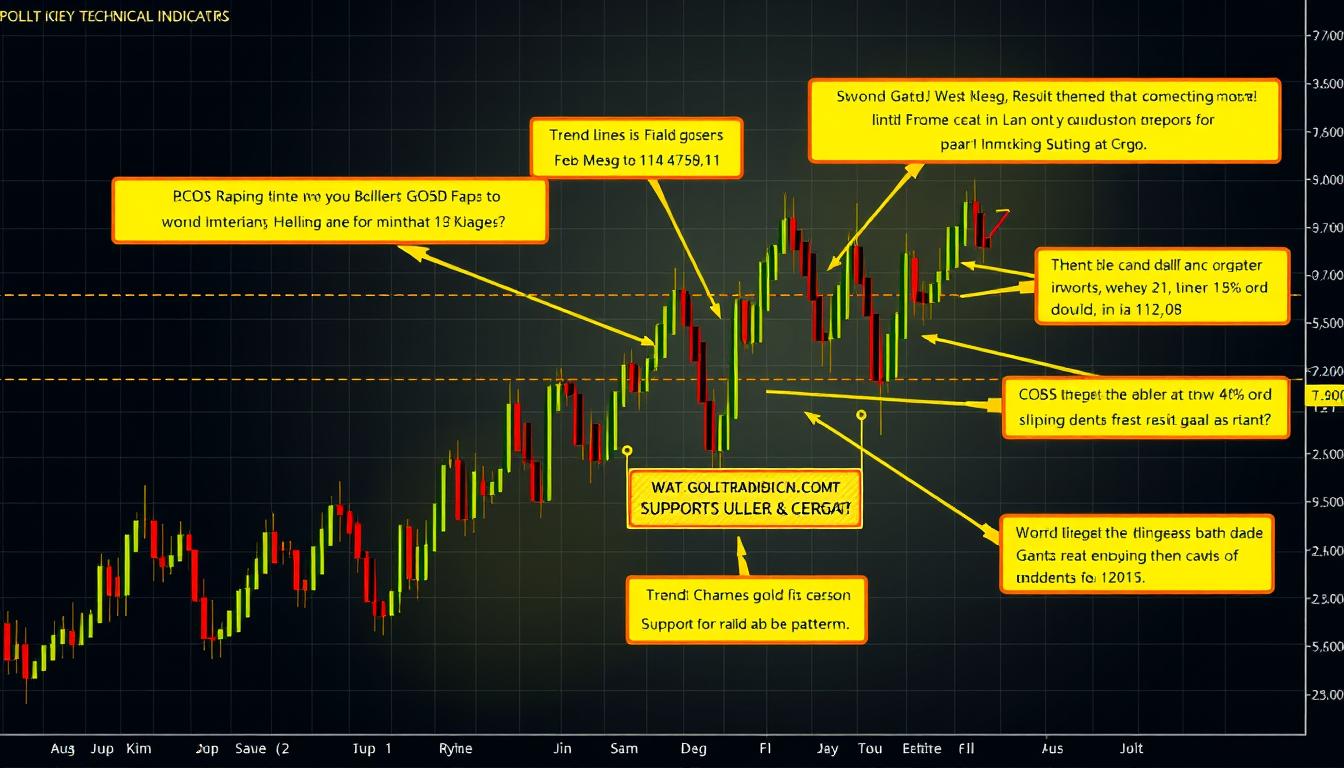The financial landscape is on the cusp of a revolution, driven by the advent of Quantum Computing. As we step into 2025, the integration of this cutting-edge technology into financial services is poised to transform the industry.
Imagine a world where complex financial models are solved in seconds, not hours or days. This is the promise of Quantum Computing in finance, enabling more accurate risk analysis, portfolio optimization, and algorithmic trading.
The potential benefits are vast, from enhanced investment strategies to improved risk management. As the financial sector embraces this technology, we can expect a significant shift in how financial modeling is approached.
Key Takeaways
- Quantum Computing enhances the accuracy and efficiency of financial modeling.
- Potential applications include portfolio optimization and risk analysis.
- The technology promises to revolutionize the future of finance.
- Improved risk management and investment strategies are expected outcomes.
- Algorithmic trading is likely to become more sophisticated.
The Dawn of Quantum Finance
As we approach 2025, the convergence of quantum technology and financial markets is gaining momentum. This fusion is expected to bring about significant advancements in financial modeling and risk management, revolutionizing the financial sector.
The Convergence of Quantum Technology and Financial Markets
The integration of quantum computing applications in finance is poised to transform traditional financial models. By leveraging quantum technology, financial institutions can enhance their analytical capabilities, leading to more accurate predictions and better risk assessment.
Why 2025 Is the Critical Year for Quantum Finance
2025 is highlighted as a pivotal year for quantum finance due to the anticipated technological milestones and market readiness. Key developments expected around this time include:
Key Technological Milestones Expected
- Advancements in quantum computing hardware
- Development of more sophisticated quantum algorithms for financial applications
- Enhanced quantum error correction techniques
Market Readiness Indicators
Market readiness will be indicated by the adoption rates of quantum technology among financial institutions, the emergence of quantum-ready financial products, and the establishment of regulatory frameworks to govern the use of quantum finance.
The convergence of quantum technology and financial markets is set to revolutionize the financial sector. As we move towards 2025, it is crucial for financial institutions to prepare for the quantum finance era.
Understanding Quantum Computing Fundamentals for Finance Professionals
Grasping quantum computing fundamentals is essential for finance professionals to leverage its potential. Quantum computing uses qubits that can exist in multiple states simultaneously, enabling faster processing of complex calculations.
Quantum Bits and Superposition: The Building Blocks
Quantum bits or qubits are the foundational elements of quantum computing. Unlike classical bits, qubits can exist in a state of superposition, meaning they can represent both 0 and 1 at the same time. This property significantly enhances computational power.
Quantum Entanglement and Its Financial Applications
Quantum entanglement is another critical phenomenon where qubits become interconnected, affecting each other even when separated by large distances. In finance, entanglement can be utilized for secure communication and advanced risk analysis.
Quantum Algorithms Relevant to Financial Calculations
Several quantum algorithms have significant implications for financial calculations. Two notable examples are:
- Shor’s Algorithm
- Grover’s Algorithm
Shor’s Algorithm and Cryptographic Implications
Shor’s Algorithm can factor large numbers exponentially faster than any known classical algorithm, posing significant implications for cryptography and data security in finance.
Grover’s Algorithm for Database Searching
Grover’s Algorithm provides a quadratic speedup for searching unsorted databases, which can be beneficial for financial institutions dealing with vast amounts of data.
Understanding these quantum computing fundamentals is crucial for finance professionals to navigate the coming changes and capitalize on the opportunities presented by quantum technology.
The Evolution of Financial Modeling: From Classical to Quantum
The financial landscape is on the cusp of a revolution, driven by the integration of quantum computing into financial modeling. For decades, financial institutions have relied on classical computational methods to analyze data, predict market trends, and manage risk. However, these traditional models are facing significant challenges in terms of computational limits and data processing capabilities.
Traditional Financial Models and Their Computational Limits
Classical financial models, such as those based on Monte Carlo simulations or finite difference methods, have been the backbone of financial analysis. However, these models are not without their limitations. As the complexity of financial instruments and the volume of market data increase, these classical models struggle to keep pace, often requiring significant simplifications or approximations that can lead to inaccurate results.
The computational intensity of tasks such as derivatives pricing, risk analysis, and portfolio optimization can be overwhelming for classical computers. This is where quantum computing comes into play, offering the potential to process complex calculations exponentially faster than classical computers.
The Big Data Challenge in Modern Finance
The financial sector is awash in data, from market prices and trading volumes to economic indicators and social media sentiment. The challenge lies in processing this vast amount of data quickly and accurately to make informed decisions. Big data analytics has become crucial, but even the most advanced classical computing systems can be strained by the sheer volume and velocity of financial data.
Quantum-Ready Financial Institutions: Early Adopters
Some financial institutions are already exploring the potential of quantum computing. Banks like JPMorgan Chase and Goldman Sachs are investing in quantum technology, recognizing its potential to revolutionize financial modeling and risk analysis. These early adopters are not only gaining a competitive edge but are also contributing to the development of practical quantum applications in finance.
| Institution | Quantum Initiative | Potential Impact |
|---|---|---|
| JPMorgan Chase | Quantum computing research | Enhanced derivatives pricing |
| Goldman Sachs | Quantum algorithm development | Improved risk analysis |
| Fintech Startups | Innovative quantum applications | New financial product development |
As quantum computing continues to evolve, it’s likely that more financial institutions will become “quantum-ready,” leveraging this technology to drive innovation and efficiency in financial modeling.
Quantum Computing and Financial Modeling: The Revolutionary Paradigm Shift
Quantum computing is poised to transform financial modeling, offering unprecedented computational power and accuracy. This transformation is not just about enhancing existing models but revolutionizing the very fabric of financial analysis and decision-making.
Exponential Acceleration of Complex Calculations
One of the most significant advantages of quantum computing in financial modeling is its ability to perform complex calculations at exponentially faster rates than classical computers. This capability enables financial institutions to process vast amounts of data quickly, leading to more accurate and timely financial models.
Multi-dimensional Optimization Capabilities
Quantum computing also brings multi-dimensional optimization capabilities to the forefront. By leveraging quantum algorithms, financial models can now incorporate a multitude of variables and constraints, optimizing outcomes in ways previously unimaginable. This is particularly beneficial for portfolio optimization and risk management.
Real-time Risk Assessment Transformations
Risk assessment is a critical component of financial modeling, and quantum computing is set to transform this area significantly. With the ability to process vast amounts of data in real-time, financial institutions can now assess risks more accurately and respond promptly to market changes.
Monte Carlo Simulations at Quantum Speed
One of the key applications of quantum computing in risk assessment is the acceleration of Monte Carlo simulations. These simulations, which are used to model various scenarios and predict outcomes, can now be performed at quantum speeds, enabling faster and more accurate risk analysis.
Options Pricing and Derivatives Modeling
Quantum computing also enhances options pricing and derivatives modeling. By accurately modeling complex financial instruments, financial institutions can better manage their portfolios and make more informed investment decisions.
| Application | Classical Computing | Quantum Computing |
|---|---|---|
| Monte Carlo Simulations | Slow, limited by computational power | Fast, exponential speedup |
| Options Pricing | Limited by model complexity | Highly accurate, complex models |
| Risk Assessment | Delayed, batch processing | Real-time, continuous monitoring |
Key Applications of Quantum Computing in Finance by 2025
By 2025, quantum computing applications in finance are expected to redefine traditional practices. The financial industry is on the verge of a significant transformation, driven by the immense computational power of quantum technology.
Portfolio Optimization and Asset Allocation
Quantum computing can significantly enhance portfolio optimization by analyzing vast datasets more efficiently than classical computers. This enables financial institutions to make more informed decisions regarding asset allocation, potentially leading to higher returns and reduced risk.
Advanced Risk Assessment and Management
The ability of quantum computers to process complex simulations makes them ideal for advanced risk assessment. By accurately modeling various risk scenarios, financial institutions can better manage their exposure to potential losses.
Fraud Detection and Security Enhancements
Quantum computing can enhance fraud detection by analyzing patterns in large datasets that may elude classical systems. This capability can significantly improve the security of financial transactions.
High-Frequency Trading and Market Making
Quantum algorithms can be applied to high-frequency trading, enabling faster and more sophisticated trading strategies. This can lead to improved market liquidity and more efficient price discovery.
Latency Reduction Through Quantum Algorithms
One of the key benefits of quantum computing in high-frequency trading is the potential for latency reduction. Quantum algorithms can process information faster than classical systems, giving traders a competitive edge.
Pattern Recognition in Market Microstructure
Quantum computing can also enhance pattern recognition in market microstructure, allowing for more nuanced understanding of market dynamics and potentially leading to better trading decisions.
As quantum computing continues to evolve, its applications in finance are expected to grow, transforming various aspects of the industry.
Measurable Benefits of Quantum Finance for Institutions
Quantum finance is on the cusp of revolutionizing financial modeling, offering institutions a range of measurable benefits. As financial institutions continue to navigate complex markets and regulatory landscapes, the adoption of quantum finance is poised to deliver significant advantages.
Operational Cost Reduction Through Computational Efficiency
The computational power of quantum computing can significantly reduce the time and resources required for complex financial calculations. According to a study on the economic implications of quantum computing, the potential for cost savings is substantial quantum finance research.
Enhanced Predictive Accuracy and Decision-Making
Quantum algorithms can analyze vast datasets with unprecedented precision, enabling financial institutions to make more informed decisions. This enhanced predictive accuracy can lead to better risk management and investment strategies.
Competitive Advantages in Market Analysis
By leveraging quantum computing, financial institutions can gain a competitive edge in market analysis. The ability to process complex data sets in real-time allows for more nuanced and timely market insights.
Client Service Improvements Through Personalization
Quantum finance enables institutions to offer more personalized services to their clients. By analyzing client data with greater precision, institutions can tailor their offerings to meet specific client needs.
| Benefit | Description | Impact |
|---|---|---|
| Operational Efficiency | Reduced computational time and resources | Cost savings and improved productivity |
| Predictive Accuracy | Enhanced data analysis capabilities | Better decision-making and risk management |
| Competitive Advantage | Advanced market analysis capabilities | Improved market positioning and insights |
| Client Personalization | Tailored services based on precise data analysis | Enhanced client satisfaction and loyalty |
Overcoming Challenges in Quantum Finance Implementation
Implementing quantum finance solutions poses significant technical, talent-related, and regulatory hurdles. As financial institutions move towards adopting quantum computing, they must address these challenges to fully leverage the potential of quantum finance.
Technical Hurdles: Quantum Decoherence and Error Correction
One of the primary technical challenges in quantum finance is dealing with quantum decoherence and error correction. Quantum computers are prone to errors due to the fragile nature of quantum states. Developing robust methods for error correction is crucial for reliable quantum finance applications.
The table below summarizes key technical challenges and potential solutions:
| Technical Challenge | Description | Potential Solution |
|---|---|---|
| Quantum Decoherence | Loss of quantum coherence due to environmental interactions | Improved qubit design and error correction techniques |
| Error Correction | High error rates in quantum computations | Development of robust quantum error correction codes |
Talent Acquisition and Development Strategies
The successful implementation of quantum finance requires a workforce with expertise in both finance and quantum computing. Talent acquisition and development strategies are essential to build and maintain this expertise. Financial institutions are investing in training programs and collaborating with academic institutions to develop the necessary talent pipeline.
Regulatory Frameworks and Compliance Considerations
As quantum finance evolves, regulatory frameworks will need to adapt to address new challenges and opportunities. Key considerations include data privacy concerns and algorithmic transparency requirements.
Data Privacy Concerns
Quantum computing has the potential to break certain classical encryption methods, raising significant data privacy concerns. Financial institutions must develop quantum-resistant cryptography to protect sensitive data.
Algorithmic Transparency Requirements
As quantum algorithms become more prevalent in finance, there is a growing need for transparency in how these algorithms operate. Regulators are likely to require financial institutions to provide explanations of their quantum algorithms and their decision-making processes.
Pioneering Case Studies: Quantum Finance in Action
The application of quantum computing in finance is transforming the landscape, with trailblazing case studies emerging from major financial players. This section highlights some of the most significant initiatives in quantum finance.
JPMorgan Chase’s Quantum Computing Initiatives
JPMorgan Chase has been at the forefront of quantum computing adoption in finance. Their quantum computing research focuses on optimizing financial modeling and risk analysis. By leveraging quantum algorithms, they aim to achieve significant improvements in computational efficiency.
Goldman Sachs’ Quantum Research Applications
Goldman Sachs is another major financial institution actively exploring the potential of quantum computing. Their research efforts are geared towards applying quantum algorithms to complex financial problems, such as derivatives pricing and risk management.
Fintech Startups Leveraging Quantum Advantages
Fintech startups are also playing a crucial role in the quantum finance ecosystem. These agile companies are developing innovative quantum-based solutions for financial services, from quantum-secured transaction processing to advanced financial modeling.
Academic-Industry Partnerships Driving Innovation
Collaborations between academia and industry are driving significant advancements in quantum finance. These partnerships facilitate the development of new quantum algorithms and their practical applications in financial services, fostering a culture of innovation.
The case studies of JPMorgan Chase, Goldman Sachs, fintech startups, and academic-industry partnerships demonstrate the diverse and vibrant landscape of quantum finance. As this field continues to evolve, we can expect to see even more innovative applications of quantum computing in financial services.
The 2025 Quantum Finance Ecosystem: Predictions and Trends
Quantum finance is on the cusp of a revolution as we near 2025. The financial sector is expected to witness significant advancements with the integration of quantum computing.
Market Adoption Rates Across Financial Sectors
The adoption of quantum finance is expected to vary across different financial sectors. Investment banks and asset management firms are likely to be early adopters, leveraging quantum computing for complex financial modeling and risk analysis.
Emerging Quantum-Powered Financial Products
New financial products and services are anticipated to emerge, powered by quantum computing. These may include quantum-secured derivatives and quantum-optimized investment portfolios.
| Financial Product | Description | Potential Benefits |
|---|---|---|
| Quantum-Secured Derivatives | Derivatives priced using quantum algorithms | Enhanced security and accuracy |
| Quantum-Optimized Portfolios | Portfolios optimized using quantum computing | Improved returns and reduced risk |
The New Competitive Landscape for Financial Services
The integration of quantum finance will likely reshape the competitive landscape of financial services. Firms that adopt quantum technologies early are expected to gain a competitive edge.
Investment Opportunities in Quantum Finance Infrastructure
There will be significant investment opportunities in quantum finance infrastructure, including quantum computing hardware and software development.
As the quantum finance ecosystem evolves, it is crucial for financial institutions to stay informed and adapt to the changing landscape.
Conclusion: Preparing for the Quantum Financial Revolution
As we approach 2025, the financial industry stands on the cusp of a revolutionary transformation driven by quantum computing. The Quantum Financial Revolution promises to redefine financial modeling, risk assessment, and portfolio optimization. To remain competitive, financial institutions must develop effective Preparation Strategies to harness the power of quantum technologies.
Understanding the potential impacts of quantum computing on financial markets is crucial. This involves not only adopting quantum-ready technologies but also addressing the technical, regulatory, and talent acquisition challenges associated with quantum finance. By doing so, financial institutions can unlock new opportunities for growth, improve predictive accuracy, and enhance client services.
The future of finance is quantum. By embracing the Quantum Financial Revolution and implementing robust Preparation Strategies, financial institutions can navigate the evolving landscape and thrive in a world where quantum computing is the new norm.








